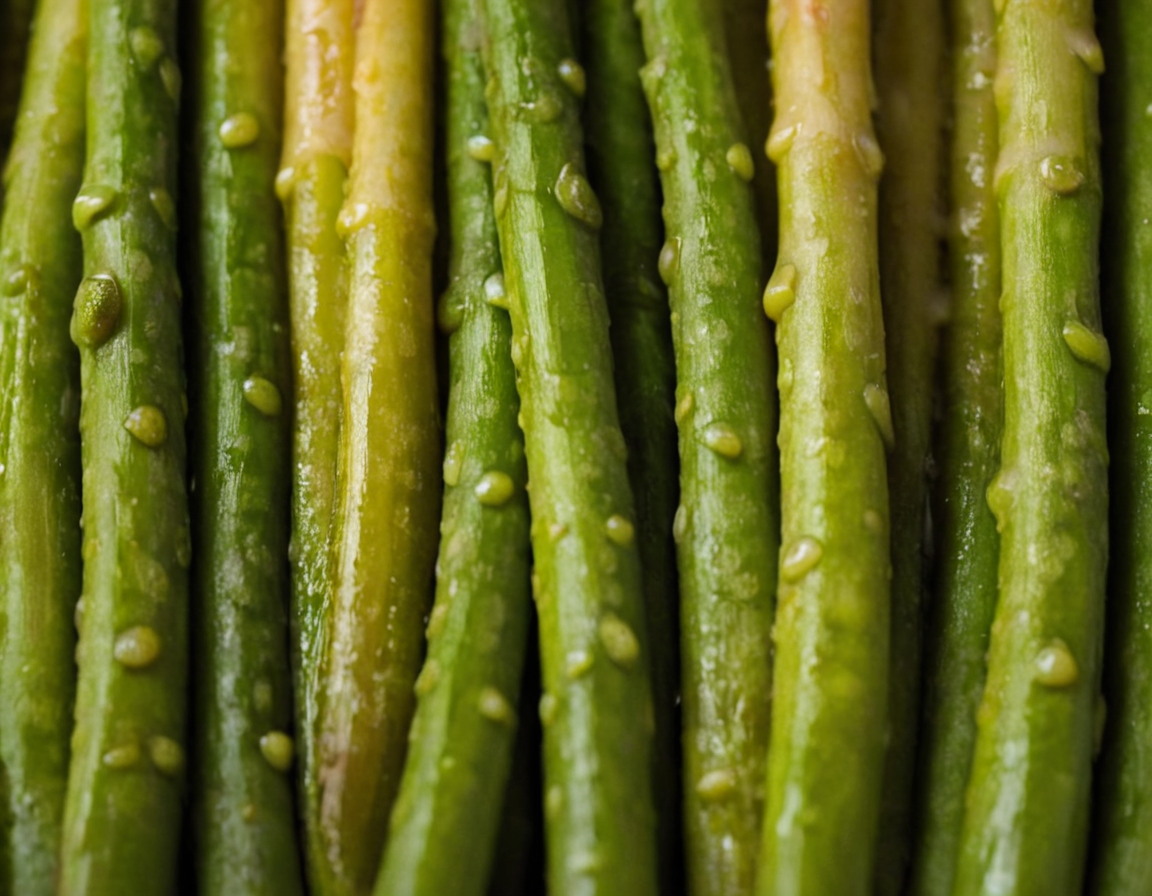
Introduction
Grilled vegetables offer a delightful blend of smoky flavor and crisp texture that makes them a favorite for many. Whether you’re preparing a summer barbecue or a simple weeknight meal, grilled vegetables can be both a healthy and flavorful addition to your plate. This guide will walk you through everything you need to know about grilling vegetables—from selecting the best produce to mastering the grilling techniques that ensure perfection.
Choosing the Best Vegetables for Grilling
When it comes to grilling vegetables, selecting the right ones is crucial for achieving the best results. Here’s a breakdown of some ideal choices:
- Seasonal Vegetables: Opt for vegetables that are in season for the freshest taste and optimal flavor. Summer vegetables like bell peppers, zucchini, and tomatoes are perfect for grilling.
- Root Vegetables: Carrots, potatoes, and beets can also be grilled. They often require pre-cooking or slicing to ensure even cooking.
- Leafy Greens: While not traditional, hearty greens like kale and Swiss chard can be grilled with a quick sear.
- Squash and Zucchini: These vegetables hold up well on the grill and develop a delicious caramelized exterior.
Preparation Techniques
Proper preparation is key to achieving perfectly grilled vegetables:
- Washing and Drying: Ensure that your vegetables are thoroughly washed to remove any dirt or residues. Dry them completely to prevent steam and ensure a crispy texture.
- Cutting and Slicing: Slice vegetables into uniform pieces to ensure even cooking. For larger items like bell peppers, cut into chunks or strips.
- Marinating: Marinate your vegetables to infuse them with flavor. A basic marinade includes olive oil, garlic, herbs, and a splash of vinegar or lemon juice.
Essential Tools for Grilling Vegetables
Having the right tools makes grilling vegetables easier and more enjoyable:
- Grill Types: Both gas and charcoal grills work well. Charcoal adds a smoky flavor, while gas provides more precise temperature control.
- Grill Baskets: These are ideal for smaller or cut-up vegetables that might fall through the grill grates.
- Tongs and Brushes: Use tongs to turn your vegetables and a brush to clean the grill grates.
Marinades and Seasonings
Enhance the flavor of your grilled vegetables with these tips:
- Classic Marinade Recipes: Combine olive oil, balsamic vinegar, garlic, and your favorite herbs for a classic marinade.
- Herbs and Spices: Experiment with rosemary, thyme, cumin, or paprika to add unique flavors.
- Oil Options: Olive oil is a popular choice, but you can also use avocado oil for a higher smoke point.
Grilling Methods
Different methods can be used depending on the vegetable and desired outcome:
- Direct Grilling: Place vegetables directly on the grill grates for a charred and smoky flavor.
- Indirect Grilling: For larger or denser vegetables, use indirect heat by placing them away from the flames.
- Using a Grill Basket: This method helps to cook smaller vegetables evenly and prevents them from falling through the grates.
Cooking Times and Temperatures
Each vegetable has its ideal cooking time:
- Vegetable-Specific Times: Bell peppers and zucchini typically need 4-6 minutes per side, while root vegetables may need up to 20 minutes.
- Temperature Guidelines: Aim for a grill temperature of around 400-450°F (200-230°C) for optimal results.
- Testing for Doneness: Check for tenderness with a fork or knife. Vegetables should be cooked through but still have a slight crunch.
Serving Suggestions
Grilled vegetables can be served in various ways:
- As a Side Dish: Pair them with your main course, such as grilled meats or fish.
- In Salads: Toss grilled vegetables into salads for added flavor and texture.
- In Sandwiches and Wraps: Add grilled veggies to sandwiches or wraps for a delicious and healthy option.
Storage and Reheating
Proper storage and reheating can help you make the most of your grilled vegetables:
- Storing Leftovers: Keep grilled vegetables in an airtight container in the refrigerator for up to 4 days.
- Reheating Tips: Reheat in a skillet over medium heat or in the oven to avoid sogginess.
- Freezing Grilled Vegetables: For long-term storage, freeze vegetables in a single layer before transferring to freezer bags.
Common Mistakes and How to Avoid Them
Avoid these common pitfalls for perfect grilled vegetables:
- Overcooking: Vegetables should be tender but still firm. Overcooking can lead to mushy results.
- Underseasoning: Don’t skimp on seasoning; it’s key to enhancing flavor.
Using Too Much Oil: Excessive oil can cause flare-ups and uneven cooking. Use just enough to coat the vegetables.
Nutritional Benefits of Grilled Vegetables
Grilled vegetables are not only tasty but also packed with nutrients:
- Vitamins and Minerals: Many vegetables are rich in vitamins A, C, and K, as well as essential minerals.
- Low-Calorie Options: They offer a filling yet low-calorie addition to your meals.
- Antioxidant Properties: Vegetables like bell peppers and tomatoes contain antioxidants that can support overall health.
Recipes for Different Vegetables
Try these recipes for a variety of grilled vegetables:
- Bell Peppers: Marinate in olive oil, garlic, and basil, then grill until charred.
- Asparagus: Toss with lemon juice and Parmesan cheese before grilling.
- Corn on the Cob: Brush with herb butter and grill until golden.
- Eggplant: Slice and marinate with soy sauce and sesame oil for a savory touch.
Vegan and Gluten-Free Options
Grilled vegetables are naturally vegan and gluten-free, but you can customize them further:
- Recipe Variations: Use gluten-free sauces or marinades to accommodate dietary preferences.
- Substitutes for Common Allergens: Replace soy sauce with tamari for a gluten-free option.
Pairing Grilled Vegetables with Other Dishes
Grilled vegetables complement a wide range of dishes:
- Meat and Seafood: Serve alongside grilled chicken, steak, or fish.
- Grains and Legumes: Pair with quinoa, rice, or beans for a complete meal.
- Cheese and Dips: Enjoy with feta, goat cheese, or a creamy dip.
Conclusion
Grilled vegetables are a versatile and delicious addition to any meal. By following the tips and techniques outlined above, you can achieve perfect results every time. Don’t be afraid to experiment with different vegetables and seasonings to find your favorite combinations. Happy grilling!
FAQs
- How can I prevent vegetables from sticking to the grill?
- Ensure your grill is well-oiled and preheated. Use a grill basket for smaller pieces.
- Can I grill vegetables without marinating them?
- Yes, but marinating adds flavor and helps to keep vegetables moist.
- What’s the best way to reheat grilled vegetables?
- Reheat them in a skillet or oven to maintain their texture.
- Are there any vegetables that are not suitable for grilling?
- Very delicate vegetables like lettuce do not hold up well on the grill.
- Can I use a stovetop grill pan instead of an outdoor grill?
- Absolutely! A stovetop grill pan works well for indoor grilling.
